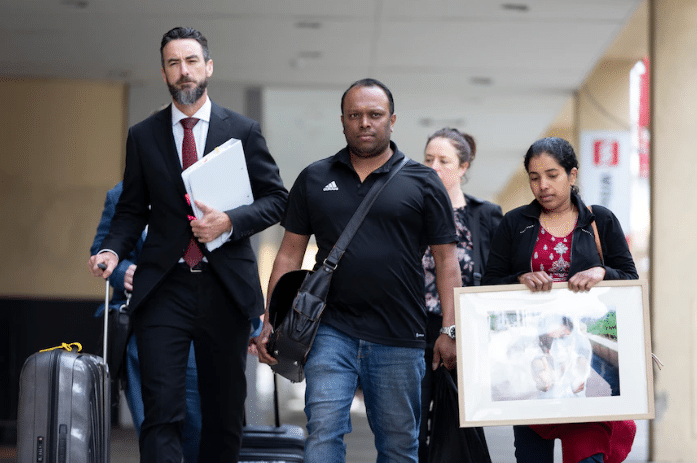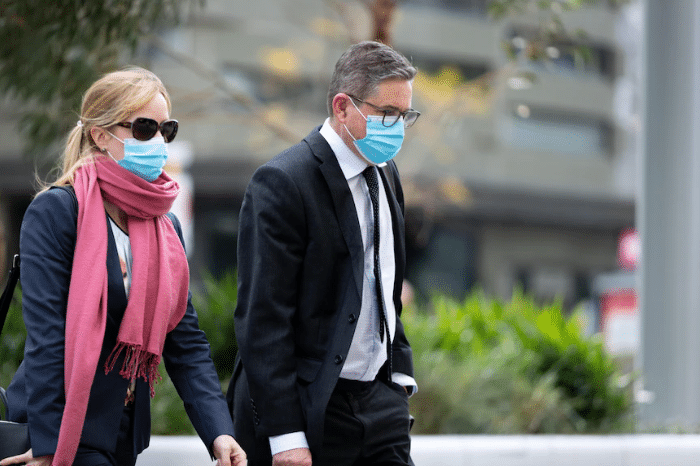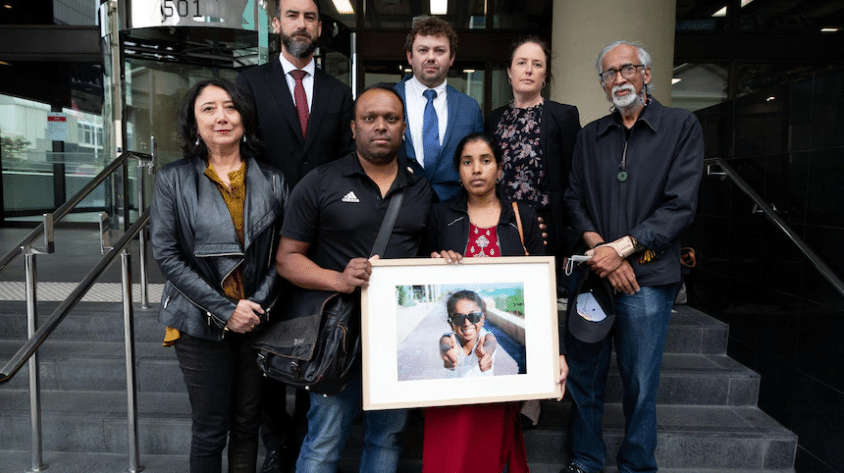The parents of a little girl who died of sepsis after waiting two hours in an emergency department waiting room have begged a court to take the "necessary steps" to prevent more parents having to endure a similar loss.
An inquest into Aishwarya Aswath's death at the Perth Coroner's Court was on its eighth and likely final day on Friday.
Through their lawyer, Tim Hammond, Aishwarya's parents read a statement where they called on the court to honour her memory.
"As responsible parents we have always given all of the opportunities in order for Aishwarya to flourish and thrive," Mr Hammond read.
"Our daughter had big dreams in life and always dreamt of becoming a teacher.

"She … became the youngest ever teacher because of the circumstances of her death that should serve as a lesson for all of us to abide by.
"This was especially so for our West Australian health system.
"Why should our health system change only after the loss of an innocent little life?
"What did Aishwarya do wrong? Why did she have to pay the ultimate price?"
Family's search for truth
Mr Hammond said all the family wanted was for the truth to come out and to see "meaningful and sustainable change in the health system so this doesn't happen again".
"Our health system has always denied and defended their actions," Mr Hammond read.
"We want our health system to be transparent and also held accountable.
"Everything we have heard in the last few days has confirmed there is much in the system that still needs to change.
"We request the honourable court to please take necessary steps to honour Aishwarya's memory."

he head of Western Australia's child health service said it "absolutely" should not have taken the death of a little girl for changes to be made to Perth Children's Hospital, as he conceded staffing levels were not adequate when she was in the emergency department last year.
Then acting Child and Adolescent Health Service chief executive Simon Wood gave evidence at the inquest into the circumstances surrounding Aishwarya's death from massive toxic shock caused by a bacterial infection in April last year.
Aishwarya spent almost two hours in the waiting room before being admitted to hospital.
At times she was left without medical supervision when the only nurse on duty was called away to other urgent cases.
Dr Wood said while staffing levels met hospital policy at the time – known as "establishment levels" — they were not adequate to meet a surge in patient presentations that had been building since late 2020.
He said while the process of finding more staff had begun by late 2020, it wasn't until an injection of government funding that staffing levels increased.

The WA government gave an additional $46 million to the Perth Children's Hospital in the financial year following the little girl's death.
That included $9.5 million for the Emergency Department in the 2021/2022 financial year — $3.5 million of which was earmarked for extra staff positions.
Another $11 million top-up was provided this financial year for the hospital's ED.
Nursing staff doubled
Dr Wood told the inquest that since Aishwarya died, nursing staff had almost doubled and another 20 senior ED doctors and 12 junior doctors had been added.
"I think we have made a lot of changes (since the night Aishwarya died) in staff," he said.
"Does that imply we didn't have it right beforehand?
"We have to acknowledge staffing levels, while they were at establishment, were not sufficient to meet (the) surge."
Under examination by family lawyer Dr Tim Hammond, Dr Wood agreed it should not have taken Aishwarya's death for those changes to be made.
"The fact is changes that have been made after Aishwarya passed away were just as clinically justified in order to ensure optimum standards of patient safety and wellbeing," Mr Hammond put to Dr Wood.
"Oh, absolutely," he said.
Praise for Aishwarya's family
Coroner Sarah Linton read a passage from Dr Wood's report addressing Aishwarya's parents as he was too emotional to do so, expressing the Child and Adolescent Health Service's "deepest sympathy".
"We would also like to acknowledge the bravery of Aishwarya's family in their advocacy," Ms Linton read.
"They have helped shape a legacy of lasting change that will inform and improve our health service for decades to come."
Ms Linton heard closing submissions from all parties, as well as giving an indication her findings would focus on "missed opportunities".
"It places a focus on what happened rather than who is to blame," she said.
But she acknowledged recommendations could be adverse and would focus on what needed to change.
She said she approached it as a member of the community and on behalf of parents who needed to feel they could safely take their children into the ED in Perth's primary paediatric hospital.
"The problem is a little girl died," the coroner said.
"We have to reflect on that and make sure it doesn't happen again."

